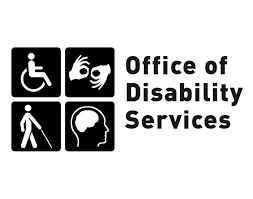Understanding the Relationship Between the Debt Ceiling and SSI Payments The debt ceiling can have significant impacts on the Social Security Income (SSI) program. Debt Ceiling: What is it? The debt ceiling is the maximum amount of money that the government can borrow to pay its outstanding bills and other financial obligations. Essentially, it sets a limit on how much money the government can borrow to cover its expenses. Failure to raise the debt ceiling
Category: Insurance tips

Filing for benefits and services for your child with disabilities differs by state. What doesn’t differ is the general process. This is overwhelming at first, but worth it, if your child has more services. Whether you’re applying for a Medicaid Waiver, SSI, or community-based services, there are some important things to remember. Apply. If your child is receiving special education services through their public school, there are programs and benefits that you should access. Even

Information for parents of disabled people transitioning into adulthood. Supplemental Security Income (SSI) is a government program that provides monthly income to people with disabilities (or who are over 65) with limited or no income to help them meet their basic needs, like food and shelter. SSI is a federal program but the states administer it. States have the option of providing additional funds and/or automatic health insurance through Medicaid. To qualify, the person applying
What you can do to protect coverage for yourself or someone you love. Health Care is expensive. According to the US Centers for Medicare and Medicaid Services, US healthcare spending reached $4.3 trillion in 2021. That makes healthcare spending 18.3% of the US Gross Domestic Product. So, it is not surprising that states have started removing Medicaid coverage for many of their residents. During the Public Health Emergency (PHE), the federal government barred states from

And how the government could make it easier There are many barriers for people with a disability and they are not all physical. There is an economic cost to having a disability that needs to be recognized. We expect that individuals with a disability will have higher healthcare costs and needs, but we overlook all the “extra” costs. These costs often force people living with a disability to choose between their independence and their government

According to Assistive Technology Industry Association (ATIA): Assistive technology (AT) is any item, piece of equipment, software program, or product system that is used to increase, maintain, or improve the functional capabilities of persons with disabilities. These allow people with disabilities to have more independent and active lives. Some examples are positioning equipment, bed rails, bolsters, pillows, wedges, dressing aids, scooters, talking alarms, communication boards, and specialty switches. Anything that helps someone with a disability
Supplemental Security Income (SSI) is a federal program that provides income to people 65 and older, blind, disabled, or who have little or no income. If you are an adult with disabilities or have a child with disabilities who will turn 18 soon, understanding how to make sure they qualify for SSI is important. In most states, once you qualify for SSI, you also qualify for Medicaid. They can use Medicaid as a supplement to
If you have ever ordered DME, you know it is a time-consuming and sometimes frustrating process. There are ways to make it less frustrating. Durable Medical Equipment can range from blood sugar meters to hospital beds to wheelchairs and a lot in between. By definition, DME must be durable (obviously), used for a medical reason, used in your home, and expected to last multiple years. Dealing with insurance companies isn’t always easy. Sometimes it feels
Medicaid waivers allow children with disabilities to qualify for services without considering their family income. This is a game changer for families who know about it.

